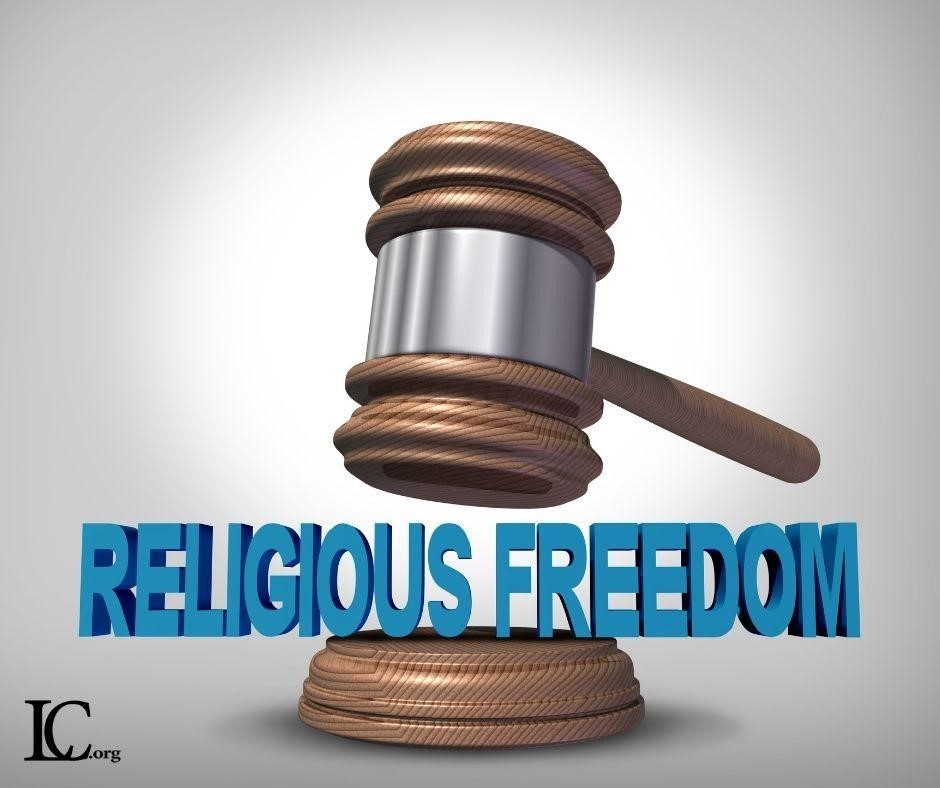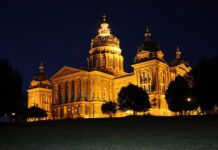Next week a Senate subcommittee will look at a religious freedom bill:
What this bill does:
- This bill says that a person’s free exercise of religion shall not be burdened by state action unless the government has a compelling interest and state action is the least restrictive means of furthering that interest. (in legal terms this is called strict scrutiny and is the highest legal standard).
- This bill also says that religious conduct cannot be treated by the state more restrictively than comparable secular conduct that is just as risky or because of a supposed economic need.
This is a simple balancing test, called the compelling interest test, the courts will use to weigh a person’s right to free exercise of religion against the government’s interest in enforcing the law. This bill does not decide which side will win. It simply restores the decades-old test courts had always used to determine if someone’s 1st Amendment “free exercise” religious liberties are being violated. It mirrors a federal law that has already been on the books for 30 years.
This bill ensures every Iowan, regardless of religion, politics, class, or how they identify receives a fair hearing when government action seeks to force that person to violate their religious beliefs.
People should be free to live and work according to their religious beliefs without fear of being punished by the government. A government with unchecked power to intrude on a citizen’s religious freedom is a threat to everyone’s freedom and all our freedoms. The inalienable right of religious liberty should be protected for everyone.
The freedom of religion was one of the most important freedoms in the founding of our nation because many Americans came here fleeing governments that were persecuting them for their faith. Despite the attacks we see on religious liberty in our nation, America remains one of the last and best bastions for the defense of religious liberty in the world today.
Contrary to what some say, this bill does not provide a “license to discriminate” (as in the case of LGBTQ persons), but instead prevents discrimination by providing a simple fair test for courts to use. There has been no instance of a court using this kind of law to allow denial of services to an LGBTQ person or any person because of their race, color, sex, ethnicity, creed, religion, sexual orientation, gender identity, national origin, age or disability. This bill does not undermine fairness and equality. Instead it preserves it.
Some may think this bill would allow for someone to opt-out of obeying a law simply by appealing to religious faith. Courts winnow those claims out that are weak or insincere and do not allow religion to be used as a pretext to escape obeying the law. This law would not protect religious practice such as “jihad” or “honor killings” or child abuse or domestic abuse as protecting life is a compelling government interest and protecting life would win out over a bizarre “religious” claim involving those actions.
Why this bill is needed: The U.S. Supreme Court weakened the use of this compelling interest test in 1990. In 1993 President Clinton and a near-unanimous Congress enacted the compelling interest test on the federal level. Since then the courts have ruled that states must each pass their own. 23 states have done so and 9 other states’ courts use the compelling interest test standard when evaluating religious liberty cases. That means 32 states have this standard in place. Iowa does not have this standard – and we need it. In recent years there has been a dramatic uptick in incidents in which hostility to religious faith, especially Christian faith, has been displayed, even in Iowa.
During the recent COVID-19 public health disaster emergency, government orders closed churches arbitrarily, without meeting the compelling interest test standard that should be applied when violating a fundamental right, in this case the 1st Amendment free exercise of religion. This bill also prohibits the arbitrary closure of churches and their activities. During the COVID emergency, churches were closed while some businesses or services remained open, which is unequal treatment by the law in violation of the equal protection clause of the 14th Amendment. If any other business, non-profit, social or government activity is allowed to proceed, then churches and their activities should be allowed to proceed.
In addition, employees applying for a religious exemption from their employers’ COVID vaccine mandate were sometimes resisted, discriminated against, or denied despite state law requiring employers to honor religious exemptions. The compelling interest test standard would assist the Civil Rights Commission in upholding state law in favor of religious freedom.
By adopting this standard, states can provide clear guidelines to courts and the executive branch, requiring them to consider the importance of religious freedom when enacting measures in times of emergencies.
This does not prevent the government from protecting the public through neutral health and safety requirements, but does ensure that religious organizations or people with religious convictions are not targeted for worse treatment than other businesses or organizations in the name of public health. The government already requires certain building codes and fire codes be observed by businesses and church alike. These codes are fine as they are neutral and everyone must abide by them. Even in a pandemic the Constitution cannot be forgotten.

















